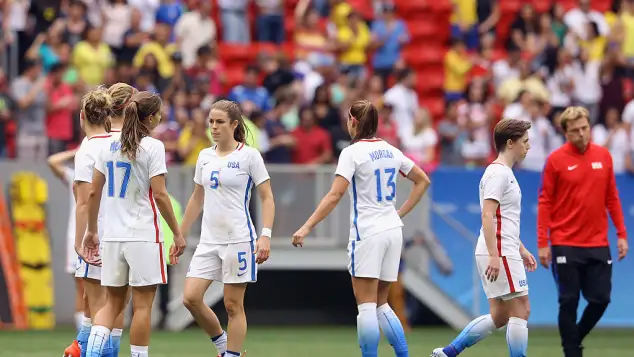- The US Women's National Soccer Team has been involved in a legal battle over equal pay
- Their grievance was in not making as much the men's team, despite their status as world champions
- After years of arguments, a settlement has been reached
For many, the issue of equal pay in the workplace is an everyday struggle. But this week, a new chapter has been written in the fight for equality. The U.S. Soccer Federation and the women's team have announced a deal Tuesday that will have players split $22 million, about one-third of what they had sought in damages. The USSF also agreed to establish a fund with $2 million to benefit the players in their post-soccer careers and charitable efforts aimed at growing the sport for women.
Also interesting:
A New Era In Women's Soccer Begins!
Megan Rapinoe, team captain and activist, has been the biggest and loudest voice surrounding the case. She has appeared in numerous talk shows in recent years where she has been clear about her position on equality and how the American Soccer Federation needs to handle their business going forward:
"For our generation, knowing that we're going to leave the game in an exponentially better place than when we found it is everything," Rapinoe said during a telephone interview with The Associated Press.
Rapinoe has been a strong media presence in recent years, and that has been by strategic design. "That's what it's all about because, to be honest, there is no justice in all of this if we don't make sure it never happens again," said Rapinoe.
The settlement was a huge victory for the players, who sparked fans to chant "Equal Pay!" after winning their second straight title in France in 2019. But many legal experts have argued that they never had a case to begin with. And perhaps they were right...
The Case Isn't Black And White
When the players agreed upon their contracts, they were given a choice of either a sure salary, or a higher pay scale based on their progression in the World Cup. They chose the sure money over the high-return risk. The men's team chose the latter, and despite being eliminated earlier in the competition, they still earned more than the women.
So like "Neo" in The Matrix, the problem was choice. Nevertheless, lawyers for the women have argued that the terms were never made fully clear, and it looks like that argument worked because the ladies are getting paid. Although the case was dismissed by many state judges repeatedly, the court of public opinion had a lot to do with their eventual victory.
This will be a huge moment for female athletes everywhere, and more changes are sure to come around the globe!








